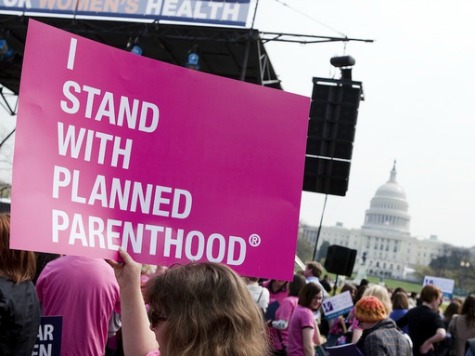
The Supreme Court on Tuesday declined to take case where a federal appeals court struck down an Indiana law denying Medicaid funds to abortion provider Planned Parenthood.
Medicaid is a federal-state partnership where government pays for healthcare for low-income Americans. It has become increasingly one-sided to the point where now the federal government dictates most details to the states; it’s a partnership in name only. In 2011, Indiana enacted a statute denying future Medicaid funds to Planned Parenthood, the largest abortion provider in the United States.
Planned Parenthood sued, raising various arguments as to why the Hoosier State did not have authority to stop payments to the abortion giant. A federal district court sided with Planned Parenthood and issued an injunction restoring funding while this litigation continues.
On appeal in Planned Parenthood of Indiana v. Commissioner of Indiana State Dept. of Health, the U.S. Court of Appeals for the Seventh Circuit rejected part of the trial court’s judgment but ultimately agreed that the Indiana statute was invalid. A three-judge panel held that under controlling Supreme Court precedent, Planned Parenthood has a right to sue under federal law for the loss of Medicaid funds.
The Seventh Circuit also held that the Indiana statute violates the federal Medicaid statute’s “free choice of provider” provision, which allows patients to go to a “qualified” medical provider of their choice.
The Chicago-based appeals court rejected Indiana’s argument that the state could declare a healthcare provider “unqualified” for any reason that furthers a legitimate public interest. The panel instead held that while Indiana can prevent payments to unqualified providers, Planned Parenthood is qualified to provide medical care because it is capable of providing the services for which women go to its facilities.
None of this bodes well for those seeking to defund Planned Parenthood at the state level. The case was argued by Indiana Solicitor General Thomas Fisher, an accomplished appellate litigator who did a good job making his case. And the panel was comprised of both liberal and conservative judges, with the opinion written by the staunchly-conservative Judge Diane Sykes.
The case now continues in the lower courts, but this loss likely determines the final outcome. If the Supreme Court refuses to take the case after the lower courts render a final decision in this litigation, the only recourse for pro-life advocates is to pass new federal legislation.
To do that, they need the House, Senate, and the White House. This will be yet one more issue decided by the voters in 2016.
Breitbart News legal columnist Ken Klukowski is on faculty at Liberty University School of Law.

COMMENTS
Please let us know if you're having issues with commenting.